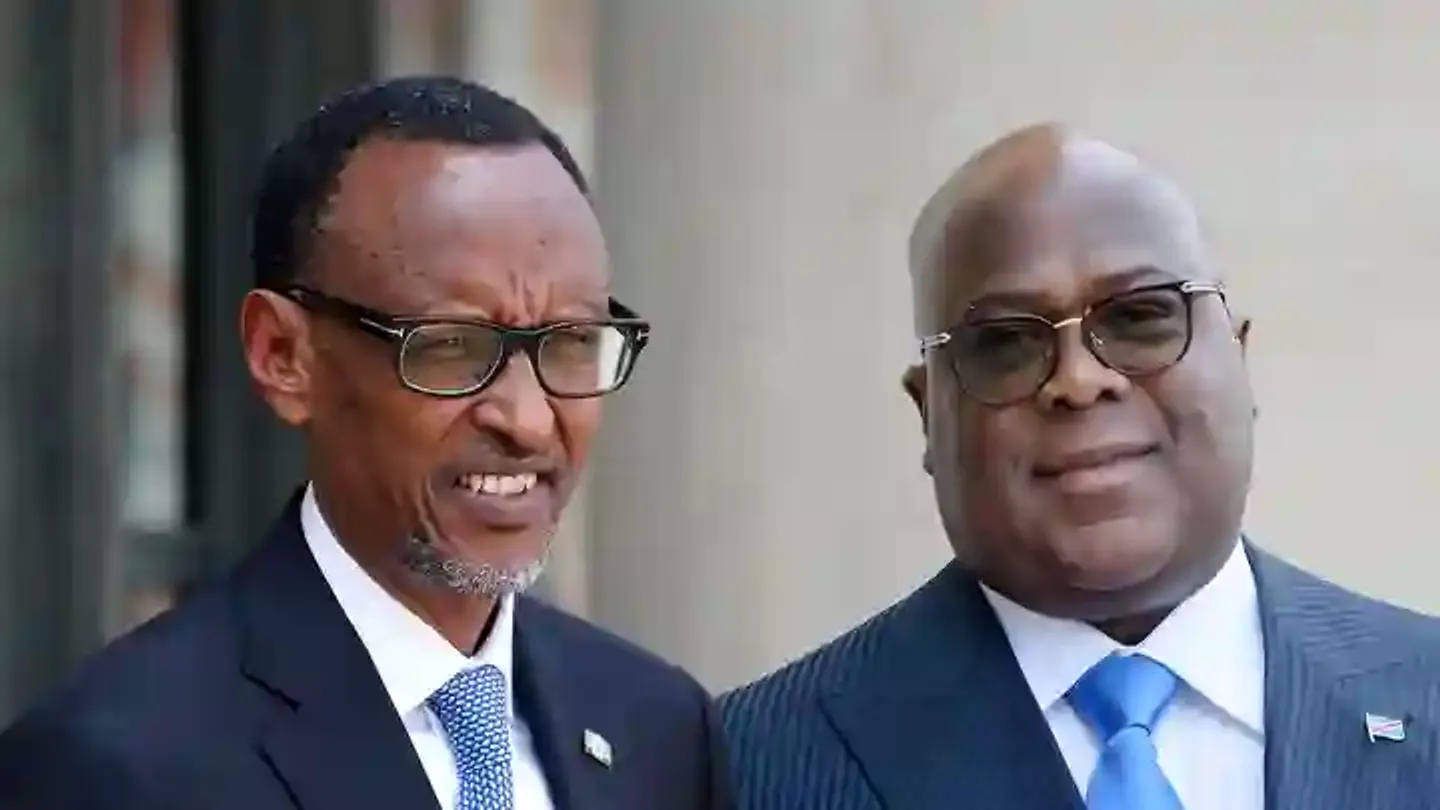Critics warn Rwanda-DRC deal could bypass justice and sacrifice M23 to economic interests

As the Democratic Republic of Congo (DRC) and Rwanda prepare to sign a historic peace agreement in Washington on June 27, 2025, concerns are mounting over what the deal leaves unsaid—particularly regarding the fate of the M23-AFC rebel movement and justice for victims of years of conflict in eastern Congo.
The agreement, brokered under U.S. mediation, aims to end years of deadly tensions and violent incursions in the Great Lakes region.
However, analysts are warning that the absence of M23-AFC, long accused of being backed by Kigali, suggests a quiet shift in Rwanda’s priorities—from military dominance to economic leverage.
“The terms of the DRC-Rwanda agreement reveal that the real issue behind Rwanda’s violent approach, aimed at forcing the DRC to cede part of its economic sovereignty, has nothing to do with the oft-invoked pretext of protecting the Tutsi minority.
The real objective is the economic subjugation of eastern Congo,” said Jo M. Sekimonyo, a Congolese economist and author, in a scathing analysis.
He argues that Rwanda may be preparing to abandon the M23-AFC in favour of deeper regional trade and investment opportunities, describing the rebel group as a “pawn” Kigali may now be willing to sacrifice.
“Its signing, under Washington’s watchful eye, reveals that Kigali prioritizes its economic interests above all other considerations.
So much so that the Rwandan regime seems willing to sacrifice, or at least turn away from, its own pawn, the M23-AFC, if doing so secures greater economic gains in the longer term,” he added.
But while the world welcomes what is being branded a breakthrough, Sekimonyo cautions that the deal could establish a troubling precedent.
“This agreement sets a dangerous precedent.
It suggests that a state can, without provocation, violate its neighbor’s sovereignty, sow death, and impose economic surrender, all with the tacit approval of international powers,” he warned.
Equally alarming is the complete omission of transitional justice for the victims of the ongoing conflict.
Thousands of civilians have been killed or displaced in clashes between the Congolese army and rebel groups, with eastern Congo bearing the brunt of the violence.
The agreement makes no mention of reparations or accountability.
“No mention, no transitional justice mechanism, or reparations have been considered,” said Sekimonyo.
“The silence surrounding the thousands of lives shattered by this protracted conflict speaks volumes about the hierarchy of priorities in these negotiations.”
With the 2028 Congolese presidential elections on the horizon, the final fate of the deal could still hang in the balance.
Sekimonyo believes the next government will face a pivotal decision: to ratify what he calls a “capitulation disguised as a bilateral agreement” or to chart a new course for sovereignty and justice.
As international dignitaries prepare for the signing ceremony in Washington, critics at home are urging deeper scrutiny—not just of the political optics, but of the moral cost.
About The Author
dailymailafric
I am an avid African news observer, and an active member of Daily Mail Africa.
I’m Passionate about staying informed on diverse topics across the continent,
I actively contribute to publishing on political, economic and cultural developments in Africa.



